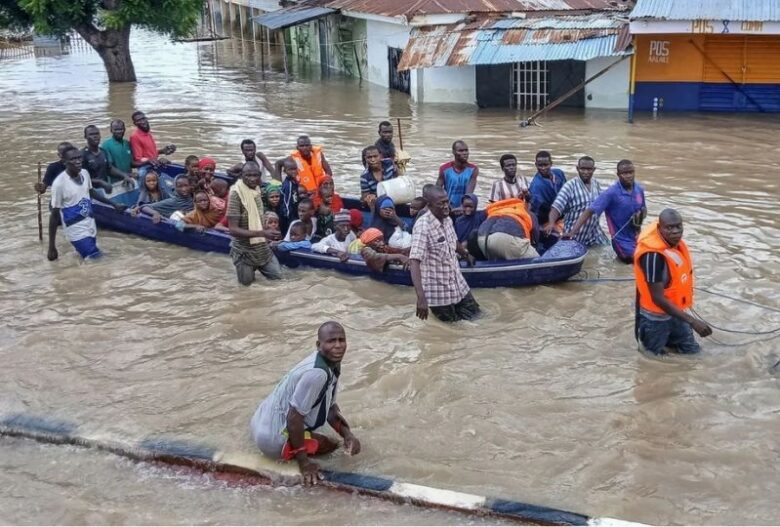The European Union (EU) has announced its support for Nigeria and five other flood-affected Sahel countries with a funding package of €5.4 million.
In a statement released on Monday, the EU identified the other beneficiaries as Chad, Niger, Cameroon, Mali, and Burkina Faso. The funds aim to assist over 4.4 million people impacted by the flooding.
The allocation is as follows: Chad €1 million; Niger €1.35 million; Nigeria €1.1 million; Mali €1 million; Cameroon €650,000; and Burkina Faso €300,000. This funding is in addition to the €232 million in humanitarian assistance already provided to these countries this year.
The EU highlighted the devastating effects of the floods, which have destroyed schools, homes, roads, and public health facilities. The financial aid will help provide food, shelter, and access to clean water and sanitation in the most affected areas.
“The EU and its partners have already addressed the immediate consequences of floods in Liberia, Guinea, Chad, Nigeria, Niger, Cameroon, and Mali,” the statement noted.
Janez Lenarčič, the EU Commissioner for Crisis Management, stated, “Excessive rainfall has hit the Sahel and Lake Chad regions with unprecedented impact, displacing millions and causing widespread suffering and damage. We are mobilizing all available resources to assist the most vulnerable in the flood-stricken countries and provide much-needed relief.”
Recall torrential rains across Central and West Africa have unleashed the most catastrophic floods in decades, residents of Maiduguri, the capital of the fragile Nigerian state of Borno — which has been at the center of an Islamic extremists’ insurgency — said they have seen it all.
The floods, which have killed more than 1,000 people and displaced hundreds of thousands across the region this year, have worsened existing humanitarian crises in the countries which have been impacted the most: Chad, Nigeria, Mali and Niger.
Over four million people have been affected by flooding so far this year in West Africa, a threefold increase from last year, according to the U.N.
With rescue operations still underway, it is impossible to give an accurate count of lives lost in the water. So far, at least 230 were reported dead in Nigeria, 265 in Niger, 487 in Chad and 55 in Mali, which has seen the most catastrophic flooding since the 1960s.
While Africa is responsible for a small fraction of global greenhouse gas emissions, but it is among the regions most vulnerable to extreme weather events, the World Meteorological Organization said earlier this month.
In sub-Saharan Africa, the cost of adapting to extreme weather events is estimated between $30-50 billion annually over the next decade, the report said. It warned that up to 118 million Africans could be impacted by extreme weather by 2030.
YOU MAY ALSO READ: South Sudanese lawyers challenge presidential election delay in Supreme Court









Got a Question?
Find us on Socials or Contact us and we’ll get back to you as soon as possible.